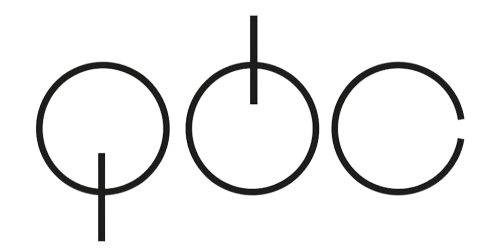At Clean Recovery Centers, we understand alcohol is readily available, and quitting may seem impossible. Our unique, three-phase approach to addiction treatment focuses on both physical and mental health. Our team can diagnose and treat mental health concerns during any phase of treatment. However, cravings can still pop up once treatment is complete. Alcohol cravings can be a challenging aspect of trying to quit drinking or maintain sobriety.
Whether you experience occasional drinking urges, or find yourself craving alcohol every day, Ria Health can help. We support everyone from social drinkers who would like more control, to people who drink heavily and daily. You don’t need to identify as an alcoholic or put your life on hold to get help with alcohol cravings. Common internal triggers include negative emotions (and sometimes even positive emotions), physical discomfort, boredom, and stress. Internal triggers can have a strong influence on your desire to drink. Frequent drivers of cravings are feelings of depression and anxiety.
Stages of Alcohol Withdrawal
In addition, Craig’s formal training and certifications provide him with the knowledge and skills to develop effective strategies and techniques for addiction recovery. The Stop Drinking Expert approach to alcohol addiction uses a unique combination of CBT techniques and NLP reframing. Craig’s qualifications are evident in his successful track record helping https://ecosoberhouse.com/ people quit drinking. Craig Beck is the author of several alcohol addiction books, such as “Alcohol Lied to Me” and “The Alcohol Illusion”. His website, , provides a comprehensive guide on how to quit drinking, including practical tips, strategies, and resources for recovery. By the second week, alcohol cravings and urges may become more frequent and severe.
You would simply let it exist, without actually following it. With time and practice, you would begin to learn that cravings eventually pass, and as a result they would become less powerful. Once you know your triggers, identify some strategies that can help you avoid them, and write those down as well. These might include not driving past your favorite bar or wine shop, or taking a break from socializing with friends who drink often. For situations where a trigger is unavoidable, you might find a trusted friend you can call, or come up with an exit strategy ahead of time.
How to Stop Alcohol Cravings Naturally
Has been a professional alcohol cessation therapist since 2010. He has helped over 250,000 problem drinkers using his personal experience and professional training in the field of addiction recovery. Craig’s personal experience with alcoholism gives him a unique perspective on the challenges of quitting drinking and staying sober. He understands the emotional and psychological factors contributing to addiction and knows how to help people overcome them.
Alcoholism puts great pressure on the liver, which is responsible for filtering toxins. This unnatural pressure affects the pancreas, forcing it to produce insulin at an exponential rate; this overdrive can lead to inflammation. The inflammatory response affects the digestive system and causes gastric ulcers. Exercises help to burn out fatty cholesterol stored up in the liver and provide a boost at cellular levels. Exercises help to regulate blood sugar and releases chemicals in the brain that improves mood, agility, and body functions, allowing you to live a healthier life.
Women and Alcohol
They can also seek medical support if they believe they may have alcohol use disorder. If you’ve had an alcohol craving before, these sensations may feel familiar to you. While they can be uncomfortable and challenging, they become less intense and easier to manage over time. As a physician on the Monument platform, it’s my goal to help my patients understand where cravings come from and how long they typically last. If safe and appropriate, we also discuss craving-suppressant medication to stop drinking. Another great research-supported tool is online alcohol therapy.
- Working with a therapist to form new, healthier associations and coping mechanisms is an excellent option for anyone looking to change their relationship with alcohol.
- Alcohol craving is found to be the major cause of abuse and subsequent health issues such as chronic alcoholism.
- People who are dependent on alcohol, or have other medical or mental health problems, should stop drinking completely.
Ria Health members also get a workbook with a number of exercises to mindfully manage drinking urges. This will give you a good idea of how much alcohol you’re drinking, the situations in which you drink, and how you could start to cut down. The steps include admitting you’re powerless over alcohol and your life has become unmanageable, admitting you’ve acted wrongly and, where possible, making amends with people you’ve harmed. Withdrawal from alcohol is an important first step to overcoming your alcohol-related problems. However, withdrawal isn’t an effective treatment by itself. You’ll need further treatment and support to help you in the long term.
Sign up to learn more
Watch a movie in your mind, and remember that the first drink isn’t ever the last one. Mindfulness and meditation involve being present in the moment and paying attention to your thoughts, emotions, and feelings without judgment. Practicing peaceful mindfulness can help you become more aware of your cravings and give you the tools to deal with them in a healthy way. The very first step in managing an alcohol craving is recognizing it. Be kind to the sensation of cravings—your perspective and attitude toward cravings influence how you manage them. Although cravings often feel unpredictable, there are usually triggers that lead to them.
People who are still drinking are not prescribed acamprosate. If certain environments, scenarios and places tempt you to drink, the simplest and most effective approach may be to avoid them, at least temporarily. Calling or texting a friend, family member, or another trusted individual can be a form of distraction and support. Incentive salience is when the motivation for a reward is driven by a person’s physiological state, learned cues, and reward associations. Alcohol increases activity in brain areas related to reward processing, which produces rewarding or pleasurable effects.
